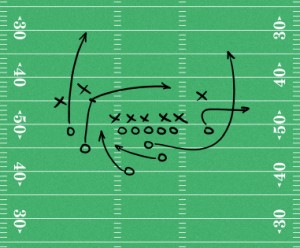 Note from Art: Every week I offer ideas to encourage you to stretch and grow. Use them in great professional health!
Note from Art: Every week I offer ideas to encourage you to stretch and grow. Use them in great professional health!
—
Do: Ask an Objective Outsider to Observe and Offer Feedback on Your Team/Project Meetings
There’s nothing like a fresh set of eyes to help assess group dynamics and team performance. One of the simplest and most powerful ways to improve project team effectiveness is to gain objective feedback on what’s working and what’s not. An outsider is able to observe interpersonal dynamics, assess whether everyone is engaged and look for destructive or toxic behaviors that are holding the team back from performing at their best. I’ve observed teams that were nothing more than debating societies, arguing everything and deciding nothing. I’ve also observed environments where a toxic team member was suppressing the input from others. The functional leader didn’t see this until I provided my unvarnished view as to what I had observed. Given that so much of our work takes place on teams and in groups, it makes great sense to ensure we’re doing everything we can to support the emergence of healthy behaviors. Find a qualified, objective outsider and ask them to sit-in on your sessions and then ask for input.
Experiment: Promote Managerial Skills Development by Establishing a Rotation for Leading Operations meetings.
Those regular events where you convene with your colleagues to review performance indicators and discuss challenges are ideal opportunities to help others cultivate their own managerial skills. Ask your team members to rotate through the role of meeting leader and give them a bit of flexibility to creatively adjust the agenda. In addition to serving as excellent practice for the team members, it will break the monotony and routine of most recurring operations meetings and add fresh voices and new energy. Consider a rotation that includes a tenure beyond a single meeting…perhaps serving for a month or a quarter. Encourage the meeting leader to both meet the objectives of the meeting (operations/indicators/issues review) and to add his/her own imprint.
Explore: What are your competitors doing that customers are paying attention to?
One of the constant themes in my writing and speaking is for professionals to shift their view and gain critical perspective from the outside. Chances are your competitors are doing something unique and/or particularly effective that has gained the attention of customers or prospects. Take the time to study your competitors and assess what’s working for them.
While never a fan of imitating competitors, it’s always critical to understand what’s working for them and what you might do to blunt their efforts. Tap into any or all of win/loss interviews, input from salespeople, industry publications, in-person customer meetings, input from product management and support professionals and presentations at industry events to understand and assess where and how your competitor is winning. Strive to find the substantive activities that are working for them and then assess whether you can adapt or countermand these activities with your own moves. It’s good sport and productive to marginalize your competitor’s efforts while focusing on your own core strategy. Keep them distracted and dancing without distracting your own firm. Remember, it’s not the imitation game…you need to focus on your own strategy while blunting theirs.
—
That’s it for the early encouragement in our new week. Best of success as you do/experiment and explore! -Art
—
Don’t miss the next Leadership Caffeine-Newsletter! (All new subscriber-only content!) Register here
For more ideas on professional development-one sound bite at a time, check out: Leadership Caffeine-Ideas to Energize Your Professional Development.
New to leading or responsible for first time leaders on your team? Subscribe to Art’s New Leader’s e-News.
An ideal book for anyone starting out in leadership: Practical Lessons in Leadership by Art Petty and Rich Petro.






Leave A Comment